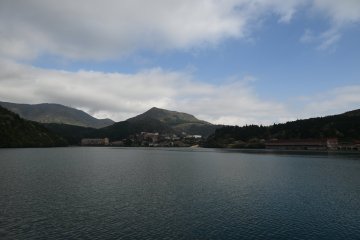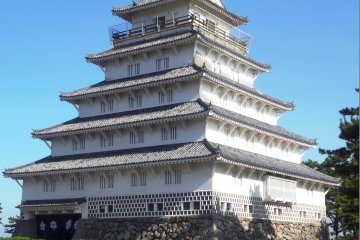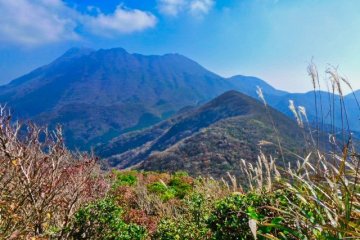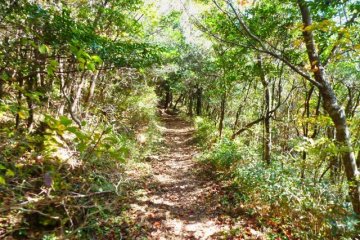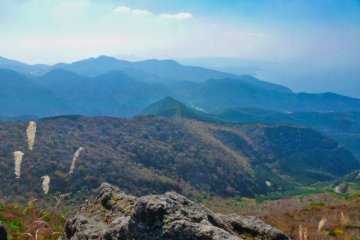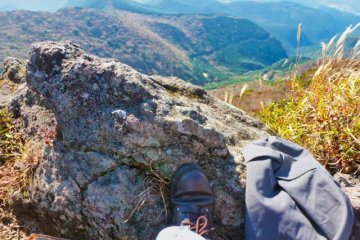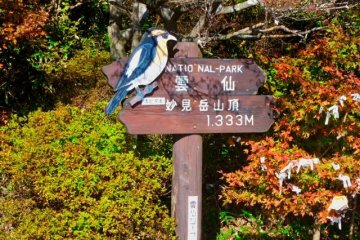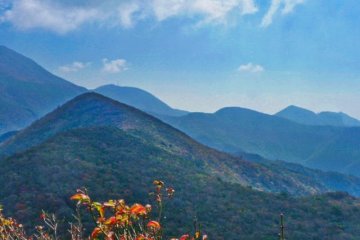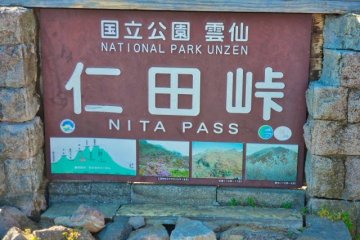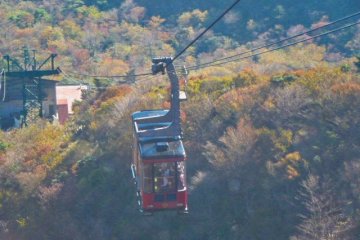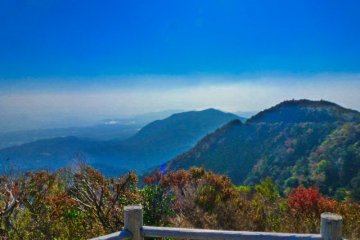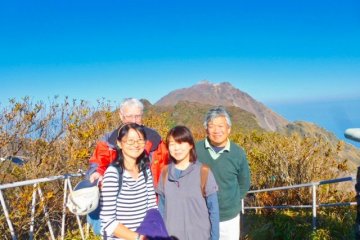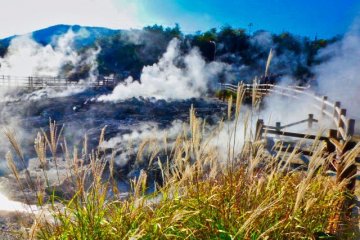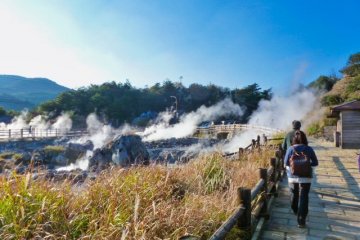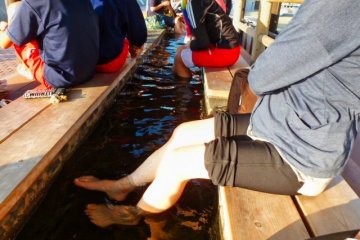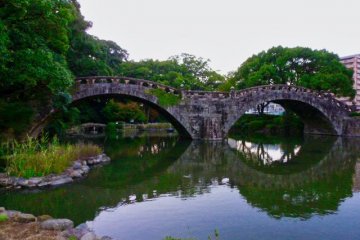In 1934 Unzen became Japan’s first designated National Park. Mt. Unzen is an active volcano, which last erupted during the 1990’s. The national park is comprised of eight mountains all of which have good hiking trails. In 1956 Amakusa islands joined the park system and it became Unzen Amakusa National Park.
A few years ago while hiking in Daisetsuzan National Park we met Masao and Sachiko a couple from the Nagasaki area and quickly became close friends. They invited us to come down to Kyushu for a day of hiking at Unzen National Park. On a beautiful mid-November day we began a hike up Mt. Kusenbudake. Although not very high at only 830 meters (2723 feet) the trip to the summit took about three hours with some very narrow trails. Upon reaching the top we sat on a ledge and ate a bento before heading back down. This trails go from flat, across picturesque valleys, to difficult rocky paths. You will need a walking stick for part of the hike.
Our next stop was the Unsen Nita Pass Ropeway, which leads to a lower observation deck and then another ride to the upper deck, both with great views of the Ariake Sea, Tachibana Bay, Mt. Unzen, and the surrounding mountains.
Back in the late 1880’s, thanks to an article in a Shanghai paper, foreigners began visiting Unzen Onsen, making it the very first resort in Japan accepting foreign tourists. Many foreigners still come for the outdoor activities and the hot springs.
The area also is famous for the introduction of Christianity known as the Shimabara-Amakusa Rebellion in the 1630’s. If you have watched the movie Silence, it depicts how the Christians were persecuted and driven into hiding. Jigoku Onsen (Hell Hot Springs) is where many were led to their deaths. Throughout the National Park are markers that tell the story of this area’s rich history.
We took a brief walk through Jigoku Onsen and then headed to the town of Obama to experience one of the many foot springs in the area. In Obama there are some hot spring ovens, and Masao cooked several different vegetables for our dinner.
Our last stop was at Isahaya Park to see the Meganebashi (Spectacles Bridge) originally built in 1839 over the Honmyo River. After a devastating flood in 1957 that killed 952 people the bridge was moved to the park and celebrates an anniversary festival every year in memory of those that lost their lives. The bridge is designated as an Important Cultural Asset.
There are many interesting activities in this area and you should plan on spending a few days exploring.



